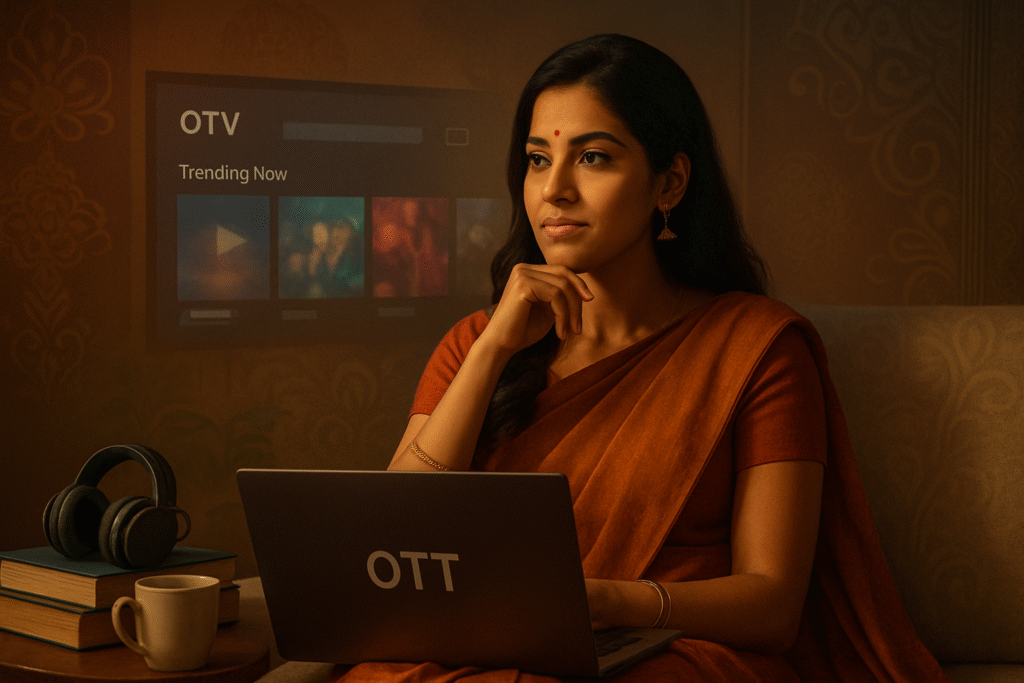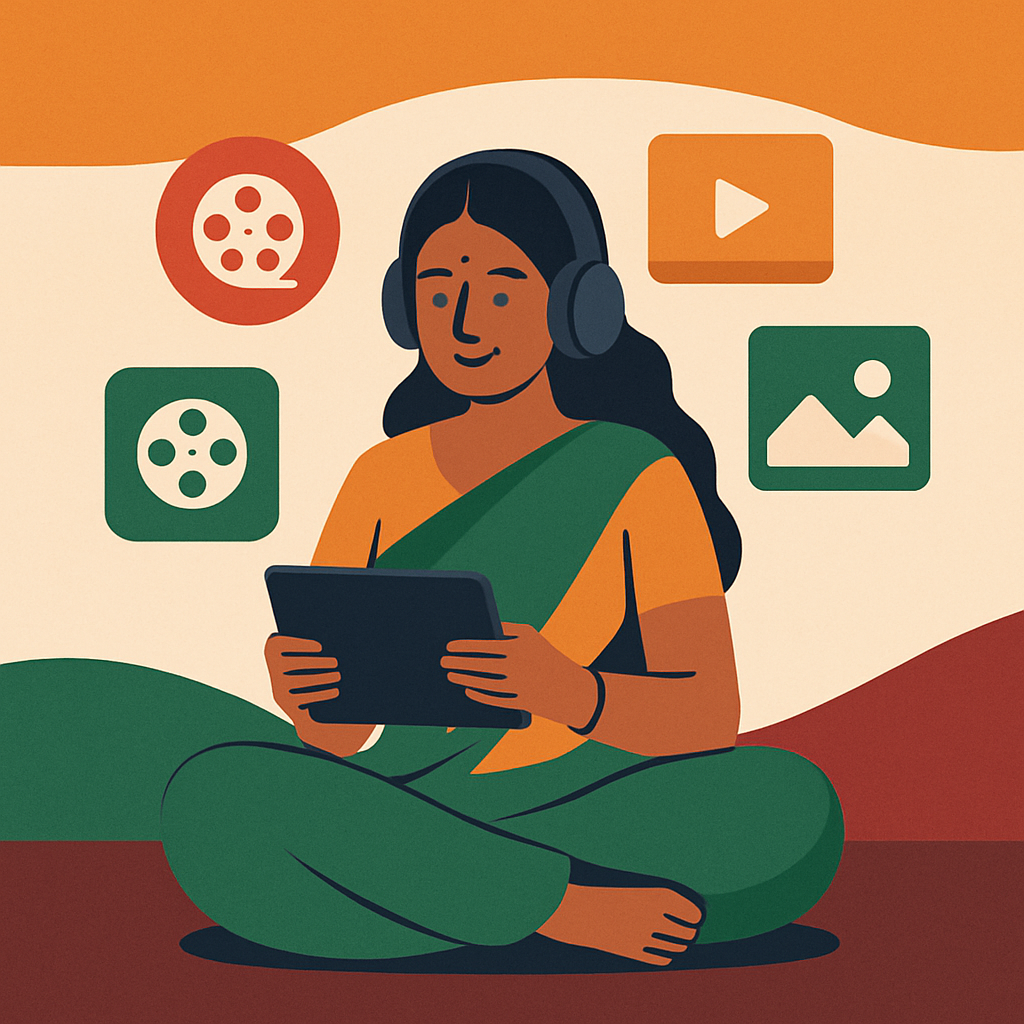
-Rashi joshi
This decade has seen a lot of changes in terms of culture and values of Indian society.
Not just the women but also the children are highly affected by the consumption of OTT.
There is an explosive rise in Over-The-Top (OTT) platforms such as Netflix, Amazon Prime, Hotstar, and ALTBalaji. These digital services have revolutionized content consumption, offering Indian audiences unprecedented access to global entertainment at their fingertips.
However, with this convenience comes a profound cultural shift—one that critics argue is slowly corrupting the minds of Indian women and eroding traditional values. The portrayal of “freedom” on these platforms is disturbingly shallow—reduced to drinking, promiscuity, defiance of elders, and a blatant rejection of responsibility. These narratives aren’t just dramatized; they’re deliberately glamorized, turning reckless behaviour into a lifestyle to be admired.
As a result, many young women have begun to internalize a warped sense of empowerment—one that sees tradition as oppression, family values as outdated, and moral boundaries as mere obstacles to personal pleasure. What’s emerging is a generation increasingly drawn toward self-gratification, vanity, and rebellion, often at the cost of the very virtues—like humility, patience, and duty—that once held Indian society together.

While many “wokes” deny the fact that they are glorifying such women with no sense of love towards their native culture. Here are some examples of these popular shows were on OTT where all the western sense of joy and pleasure was highlighted
· Four More Shots Please! (Amazon Prime) – Follows four urban women who frequently drink, party, and explore multiple romantic relationships.
· · Veere Di Wedding (ZEE5) – A film portraying bold female friendships, alcohol use, and open sexual discussions.
· · Bombay Begums (Netflix) – Features women dealing with ambition, infidelity, drug use, and complicated personal lives.
· · Dev DD (ALTBalaji/ZEE5) – A modern, rebellious female lead who smokes, drinks, and challenges traditional morality.
· · Ladies Room (YouTube/YRF) – Centres on two women with a wild, unapologetic lifestyle including substance use and non-traditional choices.
Many of these shows subtly undermine the very values that have held Indian society together for centuries—values born out of Sanatan Sanskriti, the eternal and timeless culture that has shaped Bharat’s spiritual and moral foundation.
Sanatan Dharma isn’t about blind rituals—it’s a deep philosophy of living in harmony with self, society, and nature. Indian women can reconnect with this identity by:
Studying scriptures like the Bhagavad Gita and Manusmriti (with proper guidance), which highlight the dignity, strength, and grace of womanhood.
Learning about revered women in Hindu tradition—Gargi, Maitreyi, Sita, Savitri, Rani Lakshmi Bai—who exemplified intelligence, virtue, and strength without rejecting tradition. West has always undermined our shastras as “mythology”, women are the spine of the family they must and they should reject the idea of calling their dharma as a just a myth rather call it as our glorious history without the hesitation of what will others say.
In Sanatan culture, family is not a burden but a sacred unit, where love, respect, and duty are mutually shared. Women can strengthen inter-generational bonds by spending time with elders and learning traditions.
Celebrate festivals like Navratri, Karva Chauth, Raksha Bandhan, not just as rituals but as cultural anchors that affirm her identity.
Rather than competing or mocking each other’s choices—as is often shown in OTT dramas—women can uplift one another through Dharmic sisterhood, sharing knowledge, supporting self-discipline, and inspiring each other to lead lives of purpose and inner peace.
Indian women today face a flood of OTT content promoting lifestyles often at odds with traditional values. To stay rooted, they should reconnect with Sanatan Sanskriti—a culture honouring strength, wisdom, and family bonds. By learning from sacred texts and revered women of Indian history, they can appreciate their true worth beyond modern stereotypes. Mindful media consumption and valuing dharmic roles help preserve identity amid change. Embracing family, traditions, and supportive sisterhood rooted in Dharma empowers women to navigate modernity without losing their cultural essence. True empowerment comes from balancing progress with timeless Indian values, ensuring a strong foundation for themselves and future generations.